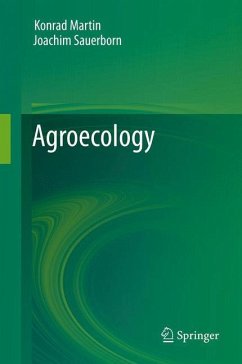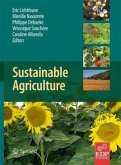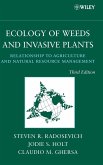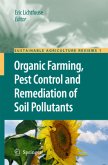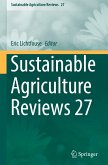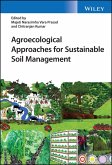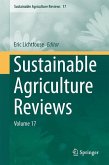This book represents an interdisciplinary approach to the relevant aspects of agricultural production related to the interactions between natural processes, human activities and the environment. It provides condensed and comprehensive knowledge on the functions of various agroecosystems at the field, landscape and global scale. Understanding and integrating complex ecological processes into field production, land management and food systems is essential in order to deal with the challenges of modern crop and livestock production. These are characterized by the need for food security for the growing human population on the one hand, and the necessity to combat the detrimental effects of food production on the environment on the other.
The book provides the scientific basis required by students and scientists involved in the theoretical and practical development of sustainable agroecosystems and contributes to a range of disciplines including Agriculture, Biology, Geography, Landscape Ecology, Organic Farming, Biological Control, and Global Change Ecology.
Specific chapters include: the beginnings and progress of agriculture; abiotic processes and species interactions in agroecosystems; ecology of agricultural soils, weeds, pests and diseases; management and control options; livestock production systems, agroecosystems of the different ecozones of the world; environmental problems including land degradation and effects of land use on biodiversity and ecological cycles; global aspects related to the future of human food production, global climate change and the increasing world population.
The book provides the scientific basis required by students and scientists involved in the theoretical and practical development of sustainable agroecosystems and contributes to a range of disciplines including Agriculture, Biology, Geography, Landscape Ecology, Organic Farming, Biological Control, and Global Change Ecology.
Specific chapters include: the beginnings and progress of agriculture; abiotic processes and species interactions in agroecosystems; ecology of agricultural soils, weeds, pests and diseases; management and control options; livestock production systems, agroecosystems of the different ecozones of the world; environmental problems including land degradation and effects of land use on biodiversity and ecological cycles; global aspects related to the future of human food production, global climate change and the increasing world population.
From the reviews:
"Martin and Sauerborn ... use a broad approach to reach a wide spectrum of readers. The book has been translated very well from the original German. The examples and concepts of agroecology presented are universal. ... This has the potential to be the book that introduces new student cohorts in both biology and agriculture to the other's point of view and to begin a new, productive conversation to the benefit of both. Summing Up: Highly recommended. Upper-division undergraduates and above." (M. J. Stone, Choice, Vol. 51 (4), December, 2013)
"Martin and Sauerborn ... use a broad approach to reach a wide spectrum of readers. The book has been translated very well from the original German. The examples and concepts of agroecology presented are universal. ... This has the potential to be the book that introduces new student cohorts in both biology and agriculture to the other's point of view and to begin a new, productive conversation to the benefit of both. Summing Up: Highly recommended. Upper-division undergraduates and above." (M. J. Stone, Choice, Vol. 51 (4), December, 2013)

